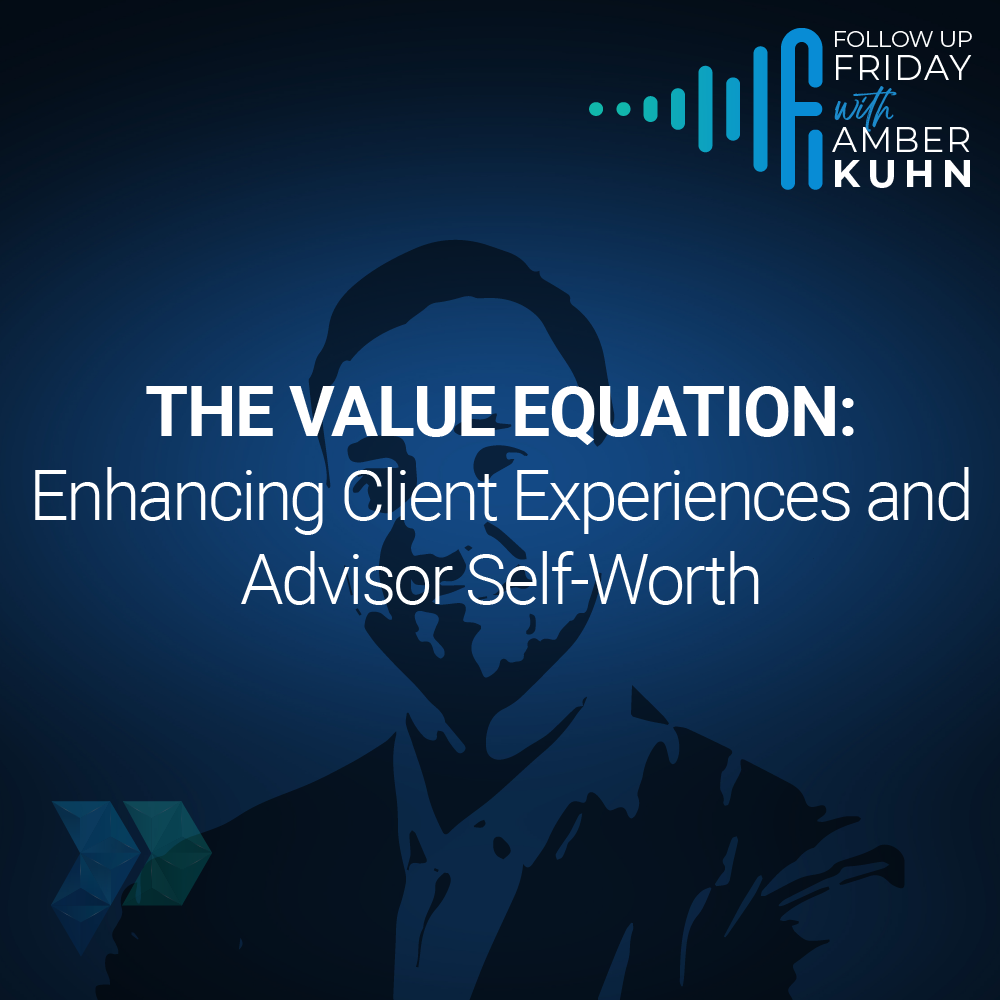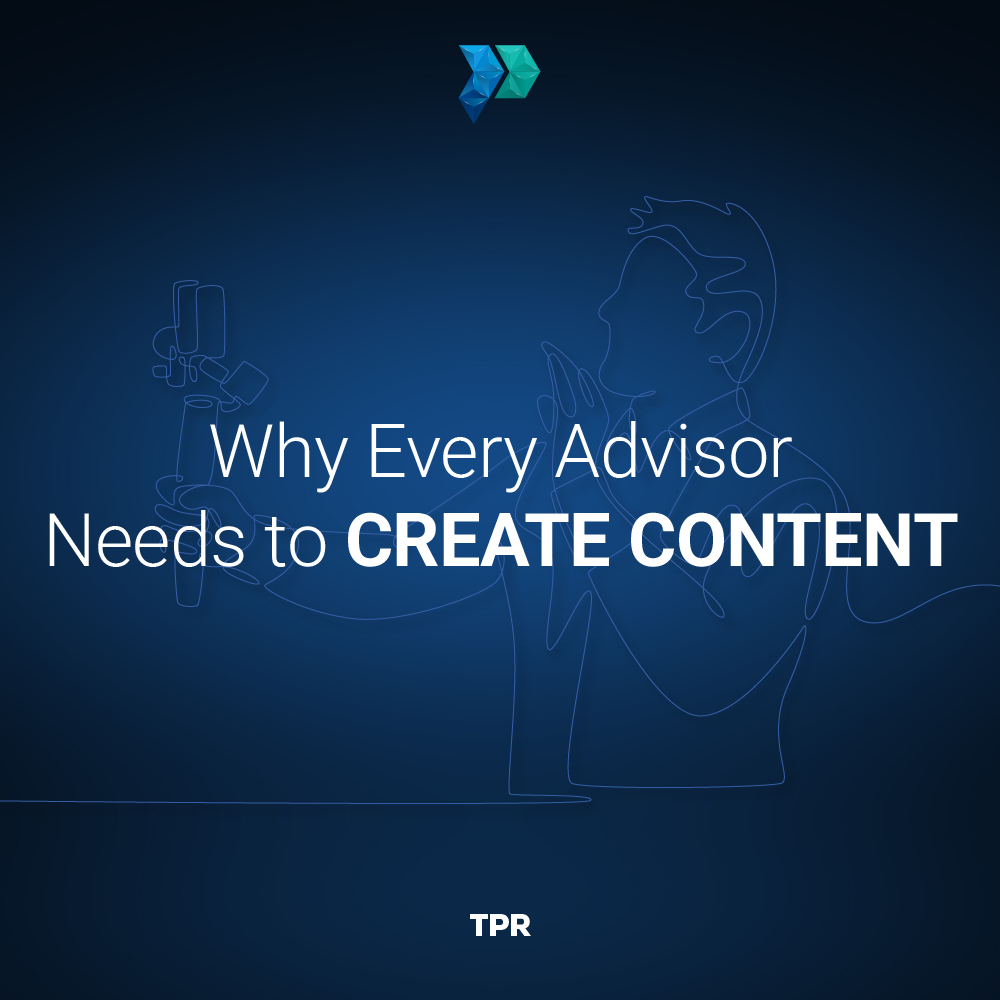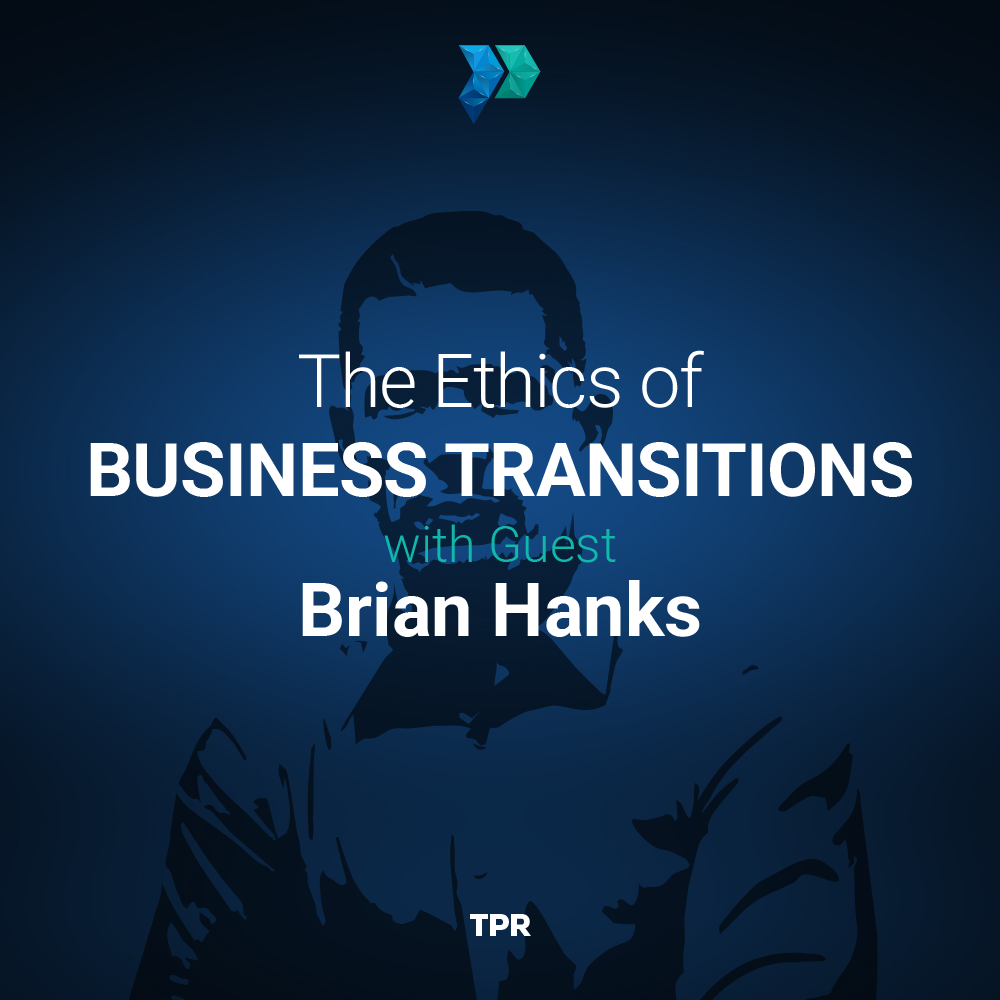What You'll Learn In Today's Episode:
- Clients today want a more personalized experience and value trust and transparency in working with advisors.
- Advisors need to shift their mindset, improve operations, and leverage technology to have in-depth conversations with clients.
- The experience economy is changing the way advisors deliver services, and they need to focus on building positive and memorable experiences.
- Advisors should focus on marketing, delivering exceptional client experiences, and charging fees that reflect the value they provide.
In this week’s recap episode, Amber first revisits Monday’s show featuring Dan Murphy from Commonwealth, who shared valuable perspectives on fostering transformational growth and delivering exceptional value in today’s evolving advisory landscape. Dan introduces the intriguing concept of the “experience economy” and offers practical strategies for strengthening client relationships in an era increasingly influenced by AI and automation.
The episode then shifts to Jamie’s discussion on the various stages of an advisor’s career path – from Growth to Freedom to Empire. Jamie provides thoughtful advice on overcoming self-doubt, confidently communicating your worth, and consistently providing value to clients. She highlights the significance of regular self-assessment, effective communication, and maintaining confidence in your unique value proposition.
Resources In Today's Episode:
Read the Transcript Below:
Amber Kuhn
Hello TPR nation. This is Amber Kuhn. I’m back with our Follow up Friday to recap this week’s episode highlights and action items. On Monday, Matt was joined by Dan Murphy from Commonwealth. He’s the head of wealth strategies on their executive team and is also practicing advisor. Dan joined that to talk about the transformational growth they’ve had in their firm and the different angles advisors can deliver value to their clients. Dan said clients, in general, want a more personalized experience than they’ve had in the past, and that technology will continue to change and disrupt and enhance what advisors do, and that what’s even more important than before is that clients have trust and transparency in working with an advisor. Matt and Dan discussed how things that used to be considered high level value are now becoming table stakes, and advisors need to have in depth conversations with their clients. Model social self planning, as Dan defines, is truly focused on. It’s more about confidence and goal achievement and working together in the relationship. As far as how Dan trains advisors on his team, on these skills and having these in depth conversations, he talked about three core pillars, the first, and he said the biggest is mindset shifting to a new, better way to do things. The second is operations and what does good planning look like. And the third is a platform and what tools are advisors using that the client is seeing throughout the process. Dan spent some time talking about the concept of the experience economy and how economies change over time, along with what end consumers value and expect. So for advisors, if you don’t adapt to this and you’re only focused on doing things quickly and efficiently, you’re going to be left behind. So Dan teaches advisors that they aren’t just providing a service or commodity, but those things delivered in a way that’s personalized to the client and creates a memorable and positive experience. They talked about the involvement of AI and technology related to this as well, and how ultimately, these things will likely provide good technical answers, but they can’t provide the connection or empathy with a person. Dan said a part of that connection really comes from being able to ask good questions, stay curious and really try to understand what someone is asking. He said, Don’t rush to give an answer without getting to the heart of the matter with a client and the intention behind the questions they have. Dan said, advisors need to remember why they’re in this business and that they’re here to service and help, but this means being deeply present and caring in conversations with clients. He said, advisors need to focus on building an experience versus just offering a service. That experience will either be positive or leave clients looking for a better experience elsewhere. It’s about time well spent. Let’s get into action items. Go to a really nice restaurant in your city and then go to the divious place and make a list of the 10 to 15 things that are different in one experience versus the other, and then apply that same thing in your office. Now, on top of that, consider what happens before you step into the restaurant and your office and what happens after. And then remember that planning isn’t a one time event. So look at the touch points you have with your clients and the experience you’re providing on Thursday, Jamie discussed the dreaded head trash that’s holding you back marketing yourself as an advisor, and the fees you charge. But to get started, she talked about the different stages an advisor goes through. The first thing the growth stage, which she mentioned in previous podcasts. And this is Lynn. The only thing you should be focused on is marketing and growth. But with marketing, it encompasses so many things, and it should be whatever gets you on a platform to share your expertise. So everything works, but you have to work it. But marketing also means delivering an exceptional client experience. Jamie also spent some time talking about value adds, and how this is something that takes time. You need to make sure that you have the necessary information to generate the value add, and you also need to make sure that it works the way you want, and that your team understands it as well. So for newer advisors, if you’ve never done a value add, start with the end result and back into it, and don’t try to do four at once. But again, if you’re in the early stages of growth focus on perfecting your marketing and client experience and expectations. Now, when you get to that next stage, the freedom stage, Jamie said, advisors have the money to do the things they want, and they’re wanting to take more time out of the office and do more delegating and also increase their revenue. And with the Empire stage, which Jamie has also referenced as enterprise as well. It’s not just about delegation, but also about training other advisors. And everyone should be doing things the same way. You don’t have to say things exactly the same, but you want a common vocabulary, and you want to follow a similar strategic plan for clients, Jamie said she sees most advisors get stuck with that head crash between the growth and freedom, because she said they don’t believe they’re delivering any value. As an advisor to justify asking someone to pay a fee, she pointed out, and this should come as no surprise to anyone, she doesn’t work for free, but neither should you. Jamie’s comfortable with what she’s charging, because she knows the value she’s providing, but the moment she doesn’t feel she’s providing value, she either graduates the client or she does an assessment, she’ll list out things about her that make her one of a kind and one of many. And what she’s found when other people start doing this assessment is that they start to get in their heads and think they have to be unique or different, that they’re just one of many. But you need to remember that just because people are looking for a similar service you might offer compared to someone else, it doesn’t mean they want that service from someone else. So with the assessment, she said, don’t get discouraged by what makes you one of many, but take the time to write out when a client hires you, what are you going to deliver, and what areas of financial planning are you going to cover? And you just keep rotating through that list as you meet with your clients, because our lives are constantly changing, and you get to come in as a problem solver, listen to their questions and concerns, and if you’re doing all these things, and you need to be comfortable knowing that there’s going to be an exchange of value, and that exchange of value is that you’re taking care of things for them. Jamie said, don’t look at someone and say that they can or can’t afford you. Your price is what it is, and don’t discount it. So if you’re struggling with delivering value or with the hedge trap, what you’re charging, then write it down and make yourself a checklist of what you said you were going to do and what you did. If you did what you said you were going to do, then you shouldn’t have any problems charging what you said you’re going to charge, because it’s your client’s choice to hire you. That wraps up this six recap. So TPR nation, if you’re looking for more resources, or if you have a question, be sure to email us at lifestyle@theperfectria.com. Thank you for joining me, and please share this or any of our episodes with another advisor or team member who you think might benefit from land, and be sure to subscribe to The Perfect RIA podcast so you don’t miss an episode. Until next time, happy planning.








